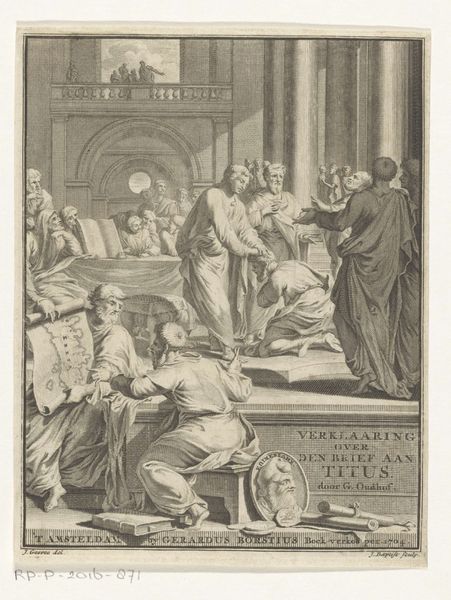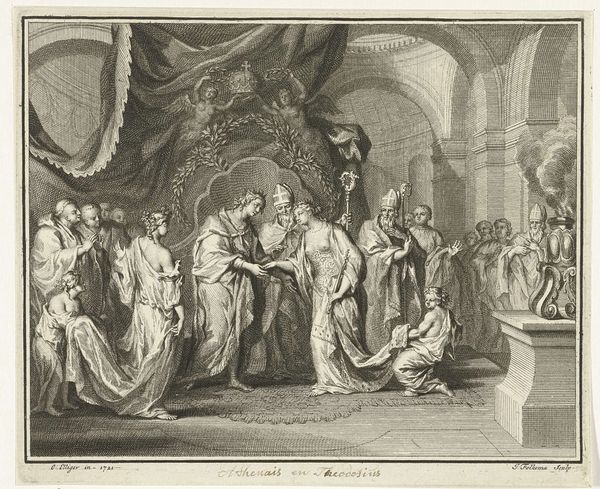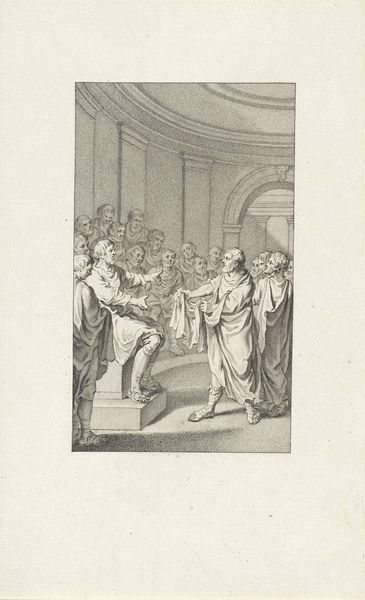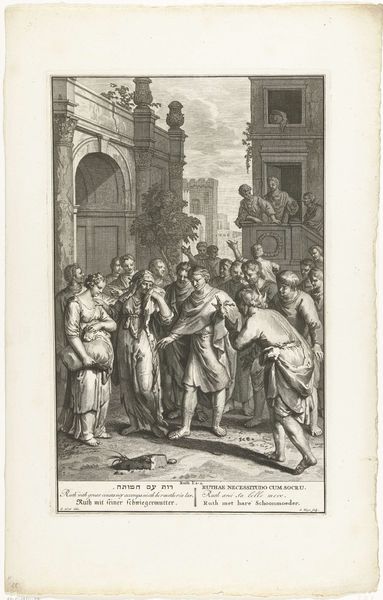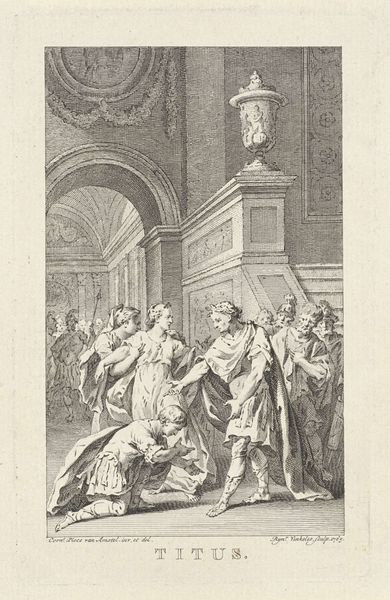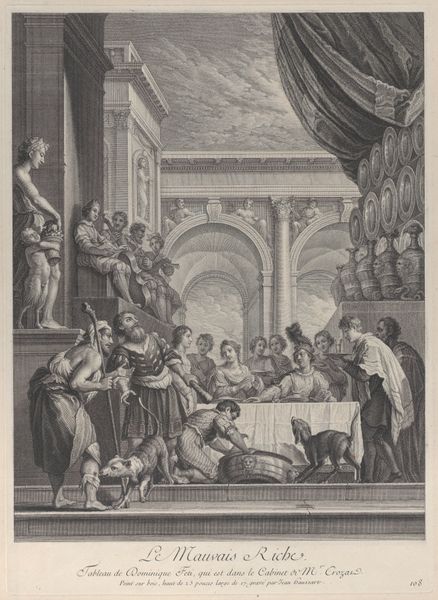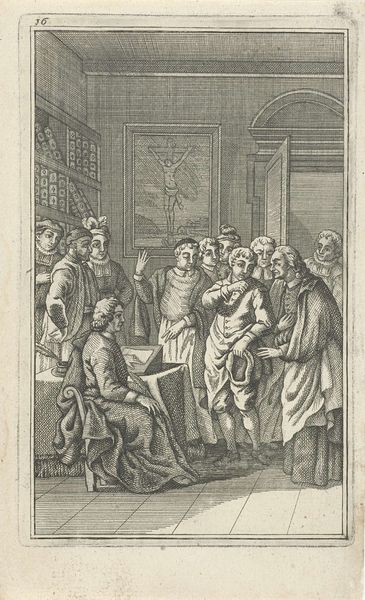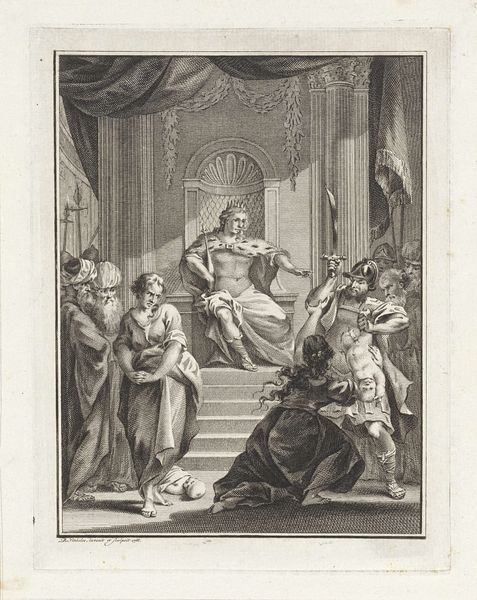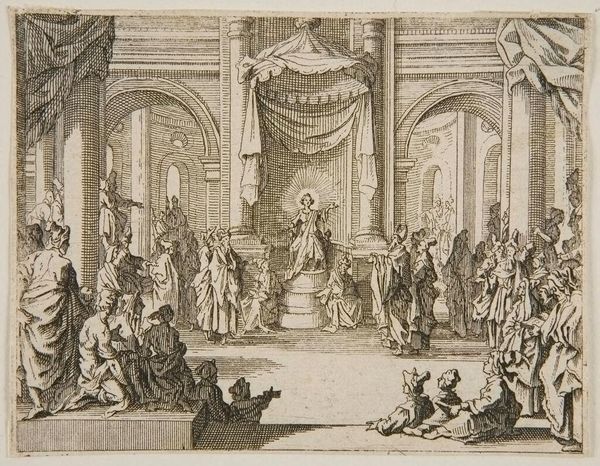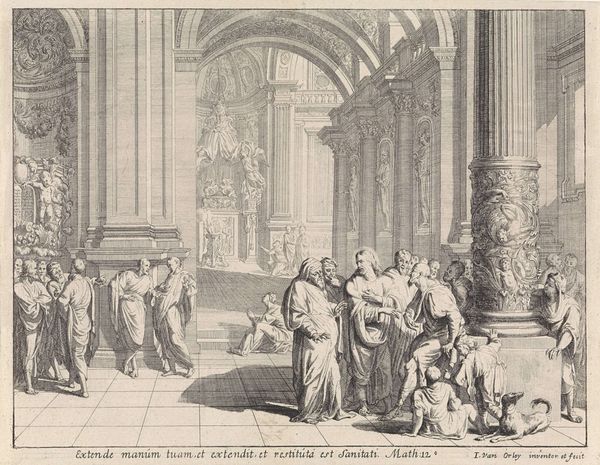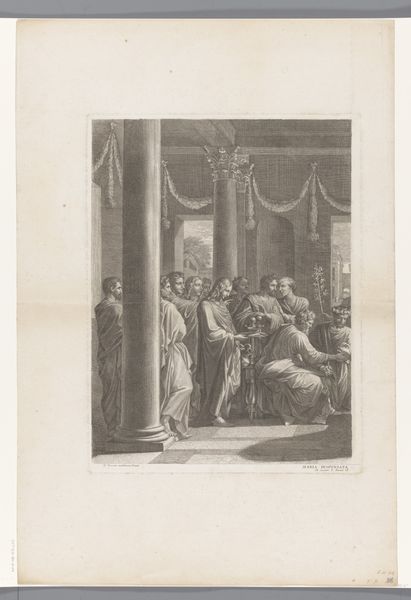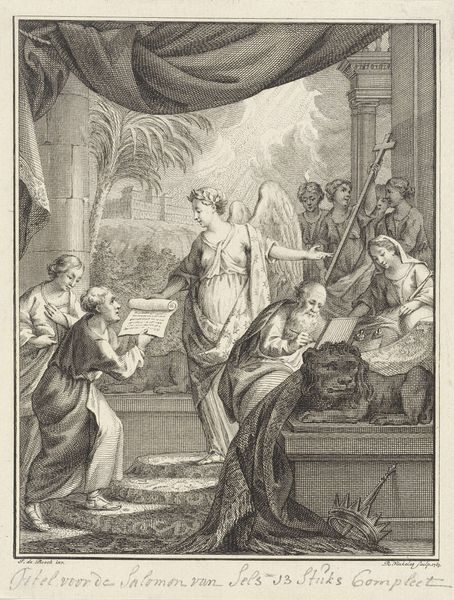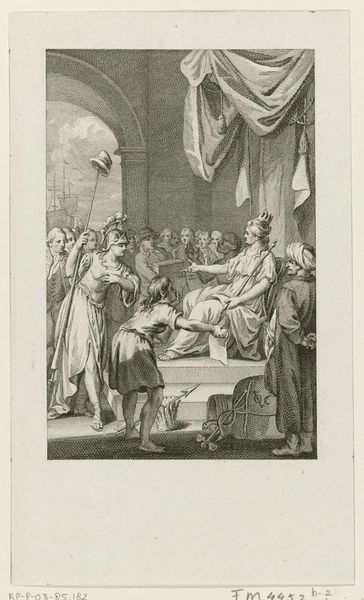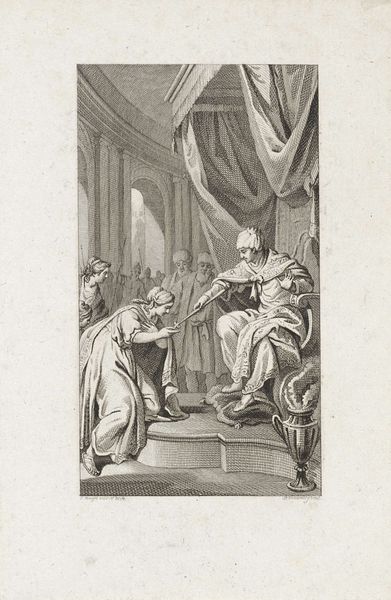
drawing, paper, ink, pencil
#
drawing
#
narrative-art
#
pencil sketch
#
figuration
#
paper
#
form
#
ink
#
classicism
#
ancient-mediterranean
#
pencil
#
line
#
history-painting
#
academic-art
#
realism
Dimensions: height 65 mm, width 55 mm
Copyright: Rijks Museum: Open Domain
Editor: We're looking at "In 't Jaar 690," a drawing in ink and pencil on paper from around 1789-1810, attributed to an anonymous artist. The scene depicts a formal presentation in what looks like a Roman setting. What stands out to me is the rigid formality and stark linearity that define this interior and the figures within. What do you see when you look at it? Curator: Initially, the balance between the light and shadow strikes me. Notice how the light, presumably natural, rakes across the colonnade and illuminates the central figure – the figure receiving what seems to be a decree. The stark contrast does more than merely highlight; it divides the composition. Are we meant to consider these illuminated figures separate from those shrouded in shadow? Editor: That's a very interesting point. It does feel like the artist is creating a distinction, not just visually but perhaps also conceptually. Do you think that's intentional, creating a visual hierarchy? Curator: Indeed. Consider the artist's placement of the main subject. Centered but subtly offset, a masterful command of asymmetry. The strong verticals of the columns create an almost architectural sense of order. We see a studied awareness of structure in how line defines form throughout. The lines almost feel mathematical in the rendering of the figures. Editor: I can see that. The figures themselves are very linear and quite still, but how do you read into this specific scene depicted and its title? Curator: Let’s not focus on potential historical readings. Let's stay with what is explicitly within the image. This focus on composition allows the drawing to stand separate from the possible themes, to better isolate its formal and technical qualities, what ultimately creates it. This all works together in quite interesting ways. Editor: I understand now. So you see the true meaning in the interplay of structure and visual components, instead of a narrative? That’s a very compelling analysis, focusing purely on its structural elements! Curator: Precisely. When we analyze how these elements coalesce, the drawing reveals a far more intricate order, wouldn't you agree?
Comments
No comments
Be the first to comment and join the conversation on the ultimate creative platform.
